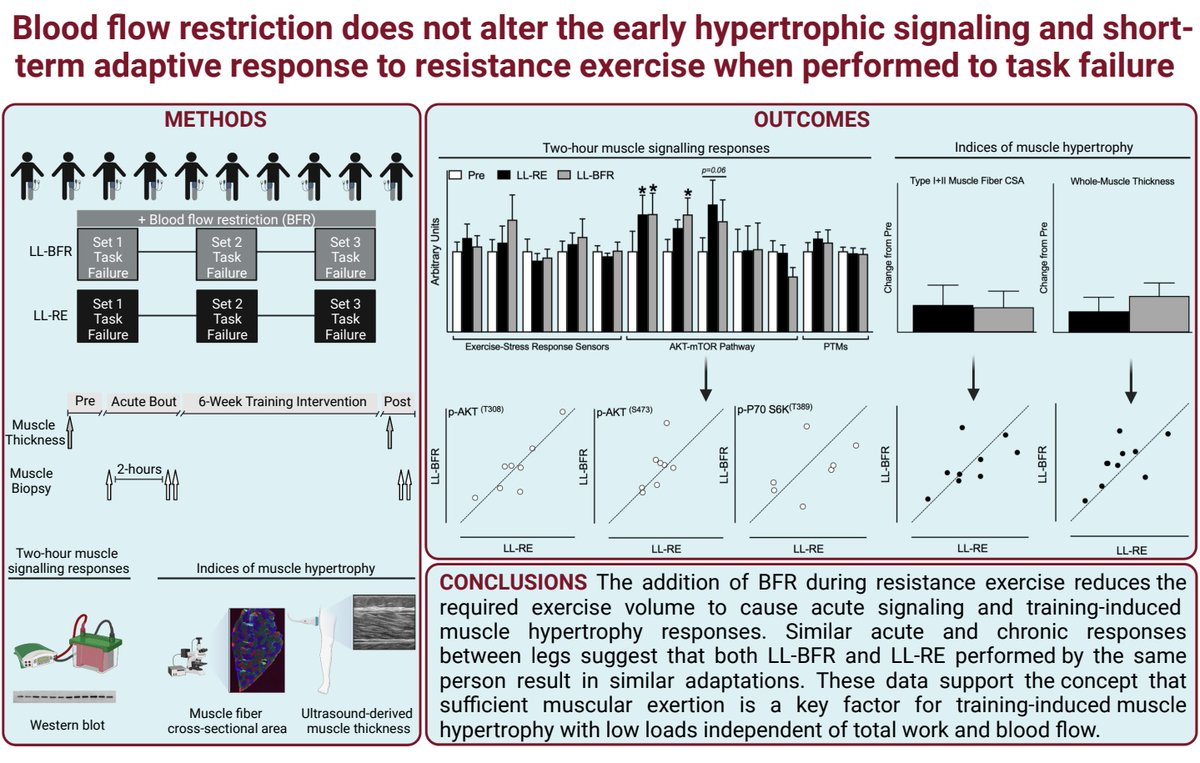The findings of this one suggest that blood flow restriction accelerates fatigue but does not increase the signaling events and muscle growth responses during low-load resistance exercise. 

- The purpose of this study was to examine if reduced blood flow during exercise alters the acute signaling and training-induced muscle hypertrophy responses when exercise is performed to task failure.
- In the present study, the acute signaling responses 2 hours after low load-resistance exercise with and without blood flow restriction performed to task failure were investigated.
- Despite a different amount of work, acute signaling and chronic adaptive responses were generally conserved between low load-resistance exercise without and low load-resistance exercise with blood flow restriction.
- Similar within-individual training responses were observed, suggesting that genetic and/or environmental factors are more important than blood flow restriction in mediating the adaptive responses when contractions are performed to task failure.
- Overall, these results support the concept that blood flow restriction accelerates the time to task failure and muscular stress with low-loads leading to training-induced muscle hypertrophy but does not support that blood flow restriction augments the adaptive response.
- "The present findings suggest the addition of BFR during resistance exercise reduces the required exercise volume to induce similar acute signaling and training-induced muscle hypertrophy responses...
...They also indicate genetic and/or environmental factors are more critical to cause an adaptive response than the intentional BFR...
"...Overall, BFR likely accelerates the recruitment of large motor units and consequently, accelerates the stress placed on individual fibers to initiate signaling pathways causing an adaptive muscle growth response."
Blood flow restriction does not alter the early hypertrophic signaling and short-term adaptive response to resistance exercise when performed to task failure
doi.org/10.1152/japplp…
#exercise #GymLife #GymTime #muscle #strength #lift #GetStrong #hypertrophy #gainz #gains
doi.org/10.1152/japplp…
#exercise #GymLife #GymTime #muscle #strength #lift #GetStrong #hypertrophy #gainz #gains
• • •
Missing some Tweet in this thread? You can try to
force a refresh

 Read on Twitter
Read on Twitter







